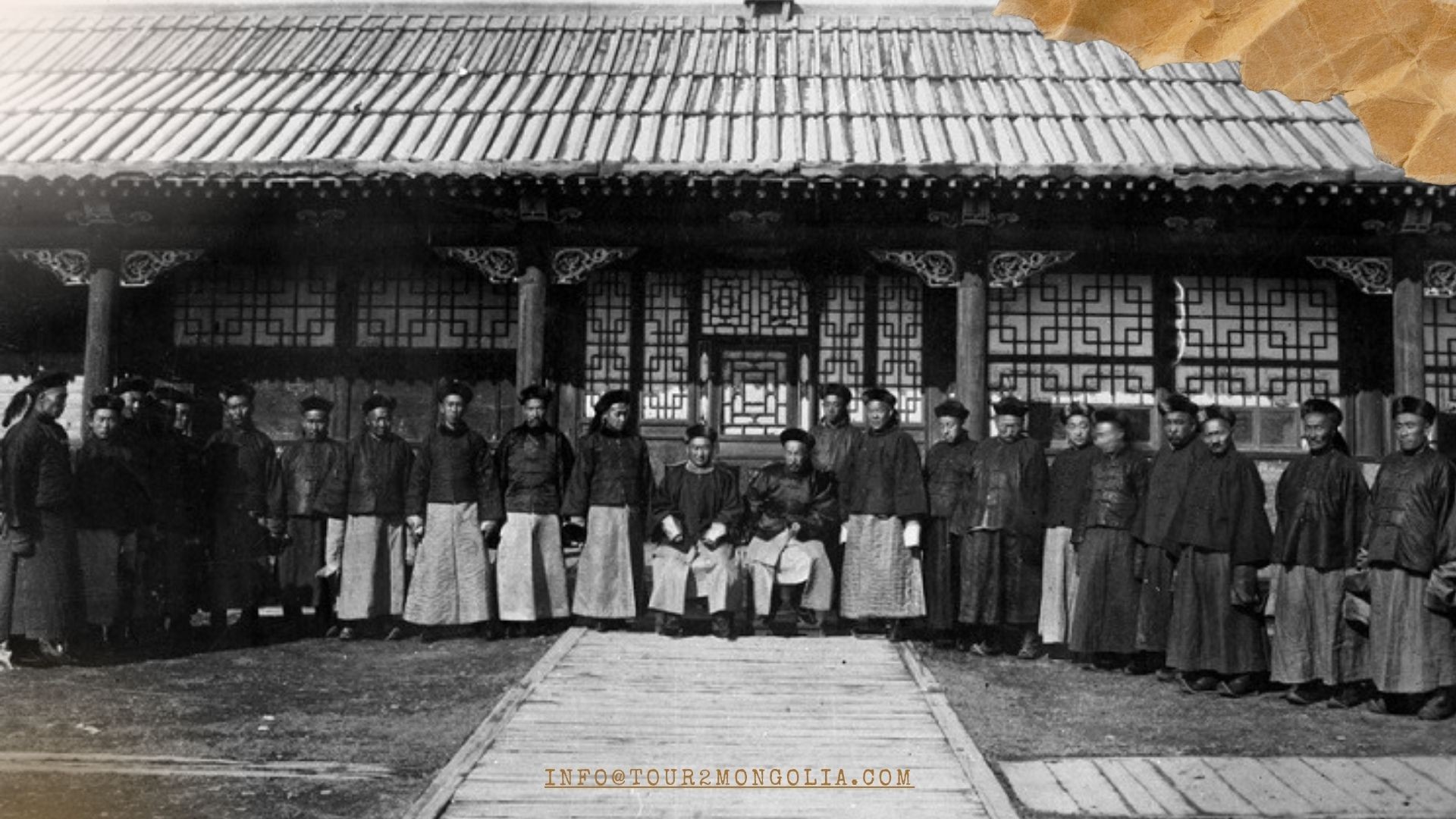I. Manchu Domination
In the mid-17th century, the Manchu conquest of China marked a significant change for both China and Mongolia. This led to over two hundred years of Manchu rule in Mongolia under the Qing Dynasty. The Qing Dynasty used a strategy called "divide and conquer" to control Mongolia, taking advantage of the divisions among Mongol tribes. They governed Mongolia through a system of administrative units known as "banners" or khoshuu. This approach aimed to keep Mongol tribes apart and prevent them from coming together. To support this separation, the authorities gave gifts, like presents and horses, to the tribes.

II. Tibetan Buddhism was introduced to the Mongols.
Some experts believe that Ligden, the last king of the Altan Urag, was the first to bring Tibetan Buddhism to Mongolia to help unite the country. However, this also made it easier for the Qing Dynasty to take control of Mongols. They used Tibetan Buddhism to reduce resistance from the Mongolians. The growth of monasteries and religious leaders created new authority that sometimes took power away from the traditional nobility. Today, Tibetan Buddhism is the main religion in Mongolia, with over half of the population identifying as Buddhist.
 Tibetan Buddhism in Mongolia
Tibetan Buddhism in Mongolia
III. Mongols under Qing Dynasty
Mongolia faced exploitation under Qing rule as its livestock and furs were taken for the empire's needs. The Qing imposed strict rules, including a ban on producing iron, making even basic items like iron pots unavailable. Over time, Chinese culture spread into Mongolia through government interactions and trade, largely due to Qing authority, which was mainly Chinese. This situation eventually led to Mongolia's rebellion against the Qing Dynasty. Motivated by a shared Mongolian identity and hostility towards Manchu rule, Mongolian aristocrats, high-ranking monks and nobles started to organize secretly.
IV. Manchu’s Domination ends
The Qing dynasty was weak after the Opium War. The 1911 Xinhai Revolution overthrew the Qing, giving Mongolia a chance to declare independence. In December 1911, under the leadership of the Bogd Khan, Mongolia declared its freedom, ending over two centuries of Manchu rule.

